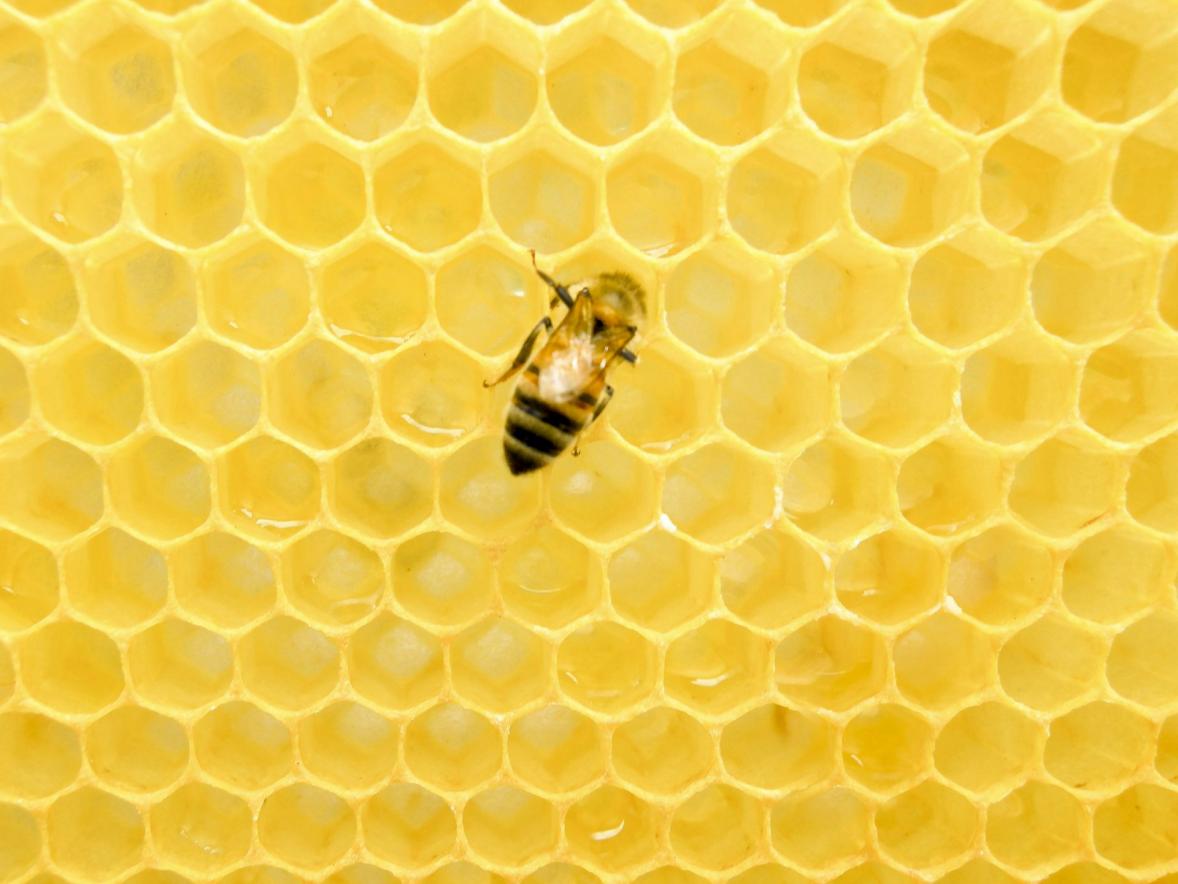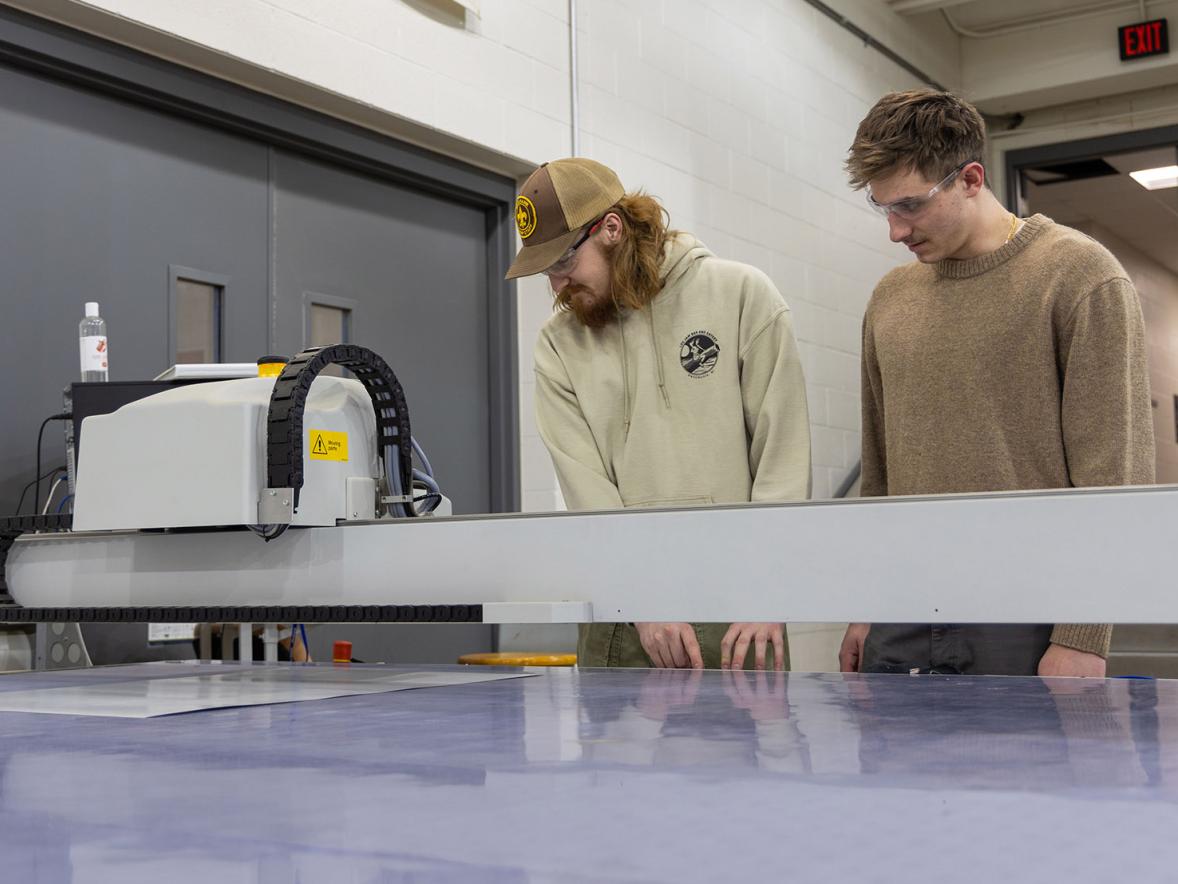In the U.S., 50% of small- and medium-size manufacturers lack basic cybersecurity controls. It’s a major national concern for those companies that work with the U.S. Department of Defense.
A valuable new resource, thanks to a $124,555 federal grant awarded to UW-Stout, will help. The 12-month award for 2025 from the U.S. Department of Defense Cyber Service Academy will create ACCESS — the AI-Powered Cloud CMMC and Education Support System.
CMMC — cybersecurity maturity model certification — is a Department of Defense program beginning in 2025 that will help businesses guard against cybersecurity threats. It will require defense supply chain partners that handle sensitive unclassified information to meet stringent cybersecurity standards.
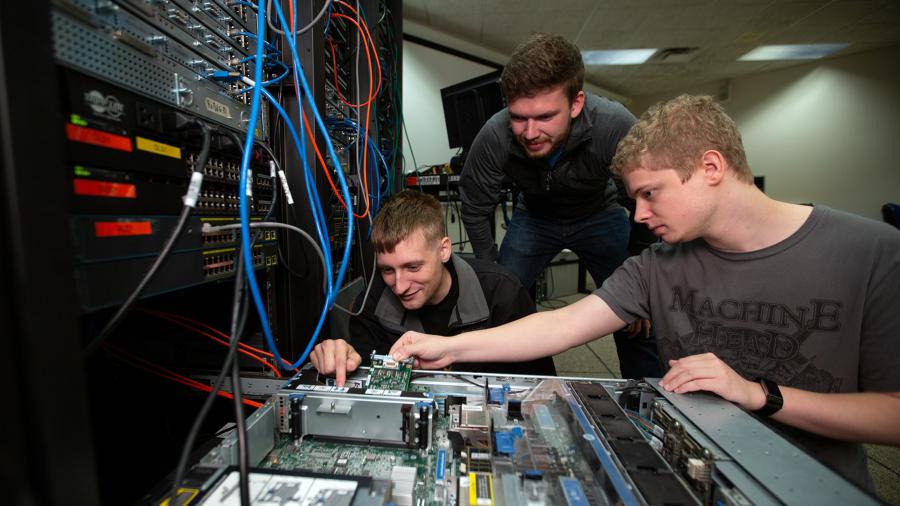
“This is a timely and critical project, as we are addressing the increasing demand for cybersecurity workforce development in the supply chain. The initiative will integrate AI and machine learning in a cloud environment to support CMMC compliance and training,” said Professor Holly Yuan, principal investigator and project lead.
The certificate program also will strengthen career opportunities and industry workforce readiness for UW-Stout cybersecurity; and computer networking and infrastructure engineering majors, prospective students and professionals in the field.
ACCESS to cybersecurity solutions
ACCESS will seek to streamline the complex process of meeting CMMC standards. Training and support through workshops and AI-powered tools will “help manufacturers navigate the often-overwhelming cybersecurity landscape,” Yuan said.
“This initiative will not only help defense suppliers understand CMMC compliance but also enhance cybersecurity training through partnerships with community colleges and industry leaders.”
Yuan will lead development of a network prototype that simulates a manufacturing system, incorporating cloud service providers, headquarters, branch offices and teleworkers.
The prototype will provide scenarios for different CMMC levels that simulate threats. Participants will learn how AI, machine learning — an aspect of AI that involves pulling information from data and automatically learning from it — and cloud technologies enhance cybersecurity compliance.
To streamline CMMC requirements, Yuan plans to build an ACCESS AI bot powered by a large language model to automate compliance tasks, provide real-time guidance, and simplify complex regulatory processes for defense contractors.
The certificate training program will be integrated as part of the Bachelor of Science in cybersecurity curriculum at UW-Stout, which has rapidly grown since its launch in 2022 to more than 130 students. The program aims to expand its role in equipping students with cutting-edge, hands-on AI and cybersecurity compliance skills.
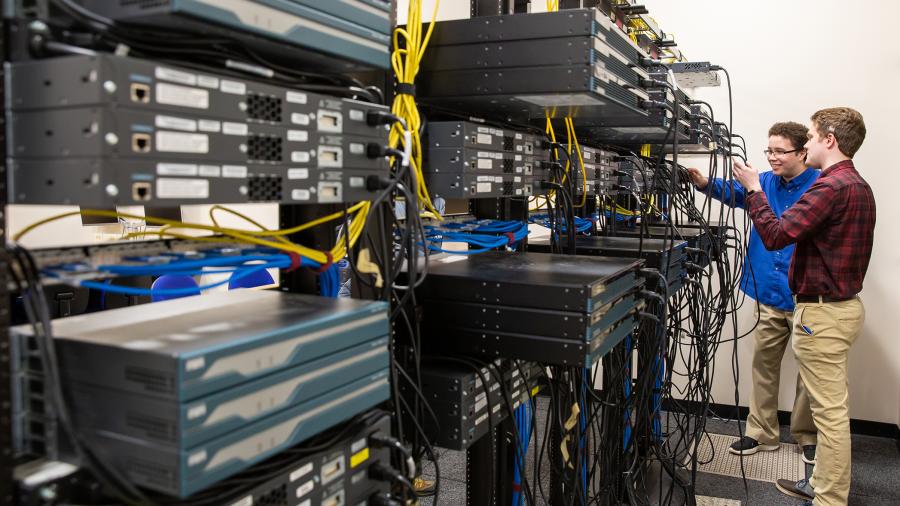
“Through ACCESS, we are equipping manufacturers with the tools to understand and meet CMMC compliance, strengthen their security posture and protect sensitive data. Simultaneously, we are preparing the next generation of cybersecurity professionals to lead in this increasingly critical field,” Yuan said.
Students from the cybersecurity and computer networking programs will be engaged as researchers for ACCESS project, like with a previous Department of Defense grant-funded project, Smart Manufacturing with 5G and Machine Learning.
Yuan noted that a $299,000 grant in 2023 for a cybersecurity student internship program with state employers, through the Department of Workforce Development, has been extended for a second year. Ten companies are participating.
Grant application and management at UW-Stout is coordinated through the Office of Research and Sponsored Programs.
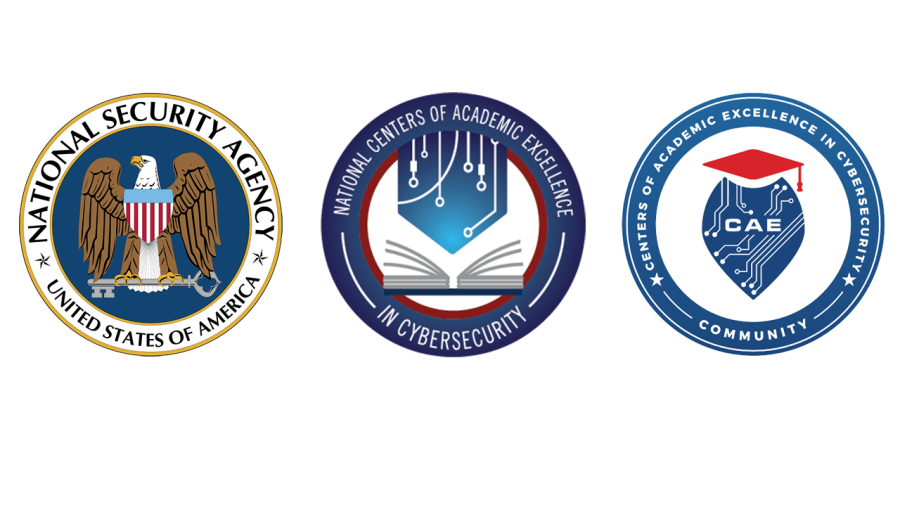
National Center for cyber defense
UW-Stout’s 2017-22 designation as a National Center of Academic Excellence in Cybersecurity for Cyber Defense was recently renewed through the 2028 academic year by the National Security Agency.
UW-Stout was the first four-year university in the state to receive the honor. Only about 4% of schools in the U.S. earn the designation.
The computer networking and infrastructure engineering program is the only such program in the state to receive the national Center of Academic Excellence Program of Study honor.
Along with the cybersecurity and CNIE majors, UW-Stout has programs in computer science; and applied mathematics and computer science.
The week of Oct. 14-19 has been declared Cybersecurity Career Week by the National Institute of Standards and Technology.
“There is a high demand for a talented cybersecurity workforce,” NIST said, noting that the U.S. Department of Labor predicts information technology and cybersecurity “will be among the fastest growing and best-paying jobs over the next decade.”
###






